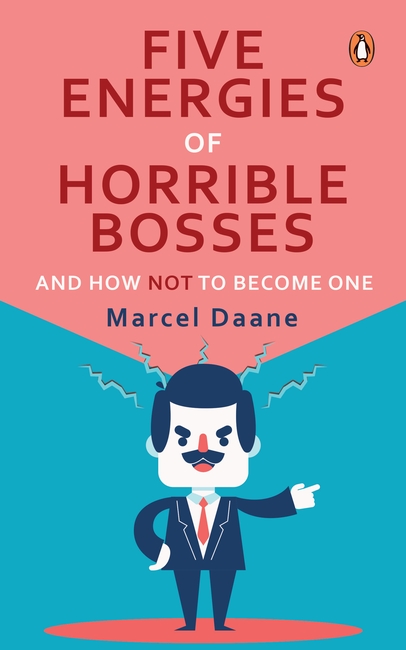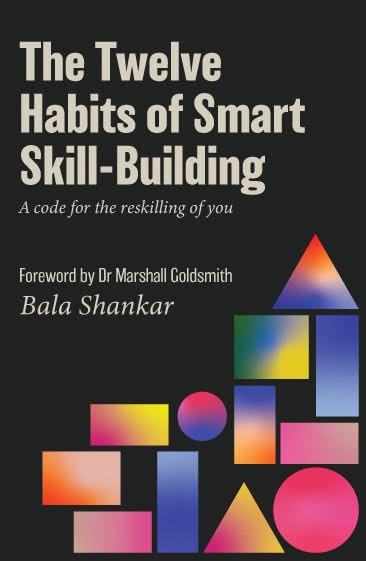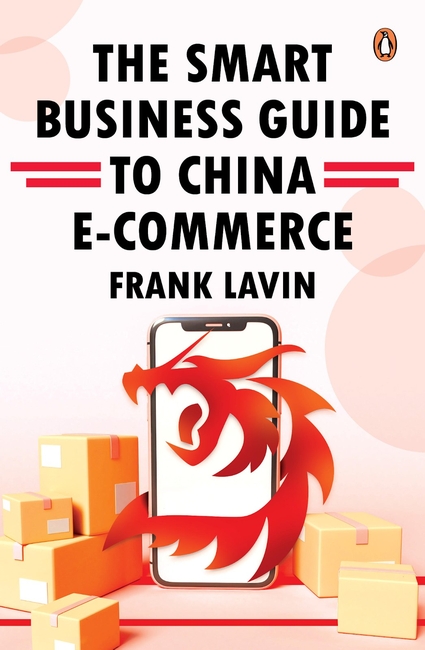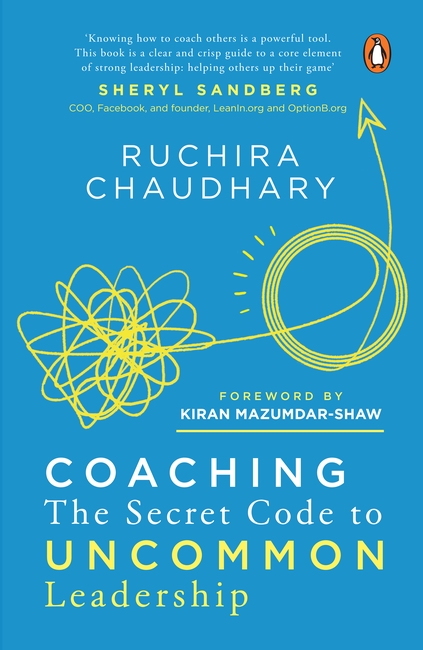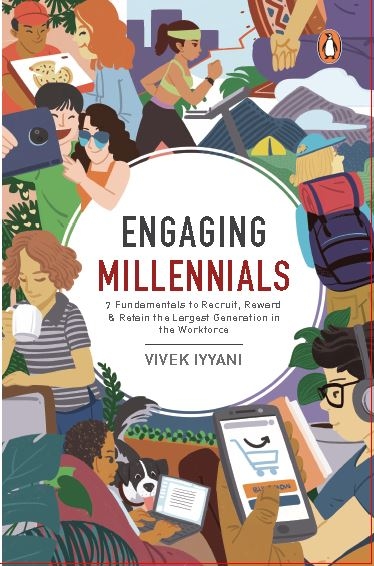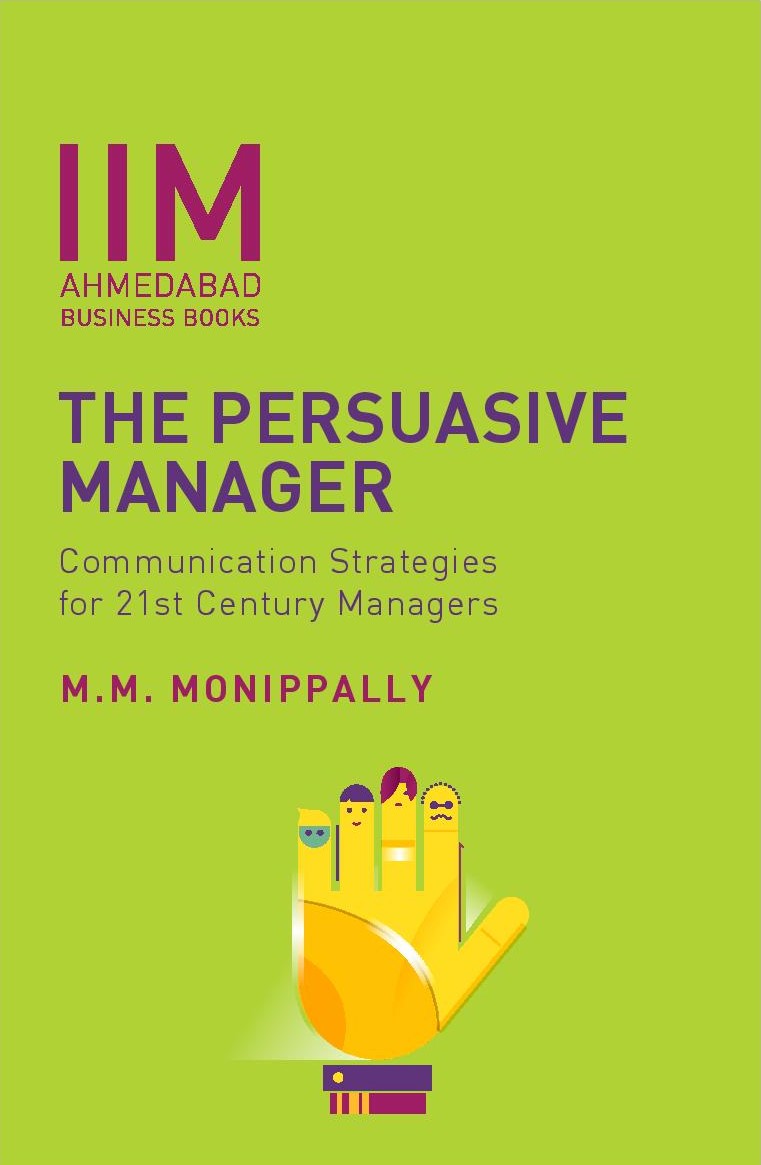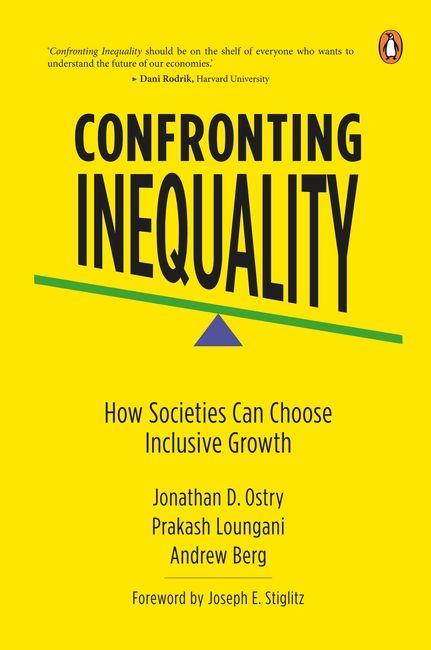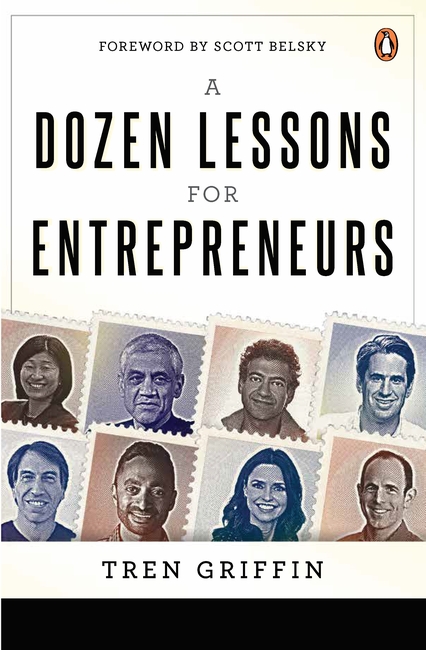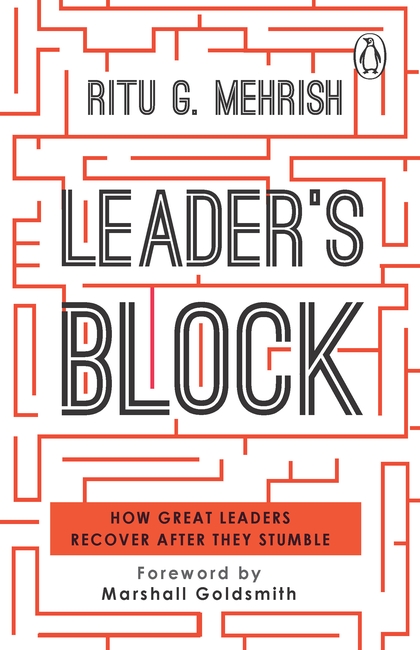
‘The fundamental difference between a great boss and a horrible boss is how they project their energy onto others. Everything else is born from that energy’
Five Energies of Horrible Bosses…And How Not To Become One is a Leadership Book like you have never read before. This book offers a holistic framework using a powerful blend of Ancient Asian Energy Practices and Modern Western Science that helps leaders and teams master their energy projection for better influence, connectedness, communication, and collaboration.
Born from an early adult life of repeated failures, managing clinical depression, alcoholism, and finally becoming a horrible boss himself, Marcel Daane tells a compelling story how he finally found direction through his practice of Martial Arts, combined with Meditation and Energy Healing.
Citing real-life examples while working with leaders and teams as a Professional Certified Coach and Neuroscientist, Marcel shares his powerful system that not only helps you assess for yourself whether the type of energy you are generating and projecting is serving you as a leader or boss, but it also teaches you how to become a master of all five energies so you can ensure you will never ever become a horrible boss yourself.

Human improvements have always been the backbone of inventions that advanced mankind. These were based on both knowledge and skills that we gained from time to time. Never before in the past decades has the topic of skills received as widespread attention and debate as now, with dominant opinion equating success with upskilling or reskilling – and failure with stagnant skillsets.
The concept of lifelong learning is challenging the old school maxim of frontloading all education. It is therefore intriguing to understand how people can take their core skills to new areas of work. What is the morphing mantra? How do people reshape their skillsets even when they are out of school? As knowledge and skill become increasingly crucial in the human versus machine competition, should we be analysing how we use old skills to do new tasks? And develop new skills with old abilities? What habit patterns helped successful people embrace skill-learning and build it as a second nature?

‘The Smart Business Guide to China E-Commerce is for any business that is thinking about a China strategy or how to approach international e-commerce. China has perhaps one of the most advanced e-commerce ecosystems in the world, and every retail brand needs a China e-commerce strategy. This book tells you how to make the most of this for your company.’
— Vamsi Mohan Thati, President, Coca-Cola Greater China & Mongolia
China is the largest e-commerce market in the world and the most digital of the major economies. At the same time, many international brands are intimidated by the China market given their lack of familiarity and the significant cultural and language differences.
The Smart Business Guide helps bridge this gap by providing a how-to approach to the China e-commerce ecosystem. E-commerce provides a powerful tool for brands to reach consumers and offers the predictability and statistical feedback that dramatically reduces the costs of a brand to enter the China market.
A quick, punchy read, The Smart Business Guide is a useful book for consumer brands, retailers, and entrepreneurs. It covers critical areas such as:
— How any brand can be a pure-play e-commerce brand in China
— How Chinese consumers are different from U.S. consumers
— The main platforms and social media channels
— Case studies of success and failure in China
— How to deal with market entry challenges, trademark registration, and product approval
— How to compete and win in the most challenging — and most promising — retail market in the world

This book lucidly illustrates how a leader can bring out the very best in people by coaching them, and how coaching can unleash creativity as well as innovation while inspiring teams to play to their potential. It also examines how coaching helps leaders maintain a fine balance between managing and guiding, and between appraising and supporting their teammates. While many excellent books have been written about leadership, talent and coaching, this is a rare book that stands boldly at the intersection of leadership and coaching.
This is a book for our times. Businesses are facing a new reality, characterized by a VUCA (volatile, uncertain, complex and ambiguous) world. This new reality has forced organizations to depart from conventional command-and-control practices to a completely new model – a model in which leaders support and guide, rather than instruct and control, their team members. Exploring some of the key ingredients of impactful leadership, Coaching offers tips
and tricks, backed by research and incisive insights, on how to become an effective leader-coach. Peppered with interesting anecdotes and analogies, drawn from sports, performing arts and other walks of life, the book is a breezy read. Interviews with corporate leaders and academics further enrich the narrative. Guaranteed to make for a very interesting read, the book will be useful to leaders, aspiring leaders and especially those that wish to transition from being just good leaders to extraordinary ones.

By 2025, Millennials will form 75% of the global workforce and more than half of them (58% of global Millennials) are living in Asia! As this huge demographic surges towards becoming a substantial contributor to Asia’s workforce, organisations continue to face engagement and retention challenges while balancing the need to stay relevant in a volatile, uncertain, complex and ambiguous world.
Archaic methods of management do not deliver success with the new breed of employees. Instead, the outdated model leaves Millennials uninspired and unmotivated to produce results. Like any generation of workers, performance lies in management-if you’re not getting what you need from your Millennials, it’s time to learn how to lead them the way they need to be led. To get the best out of Millennials, it is imperative for leaders to modify their current management style.
While the pop culture narrative would have us believe that Millennials are entitled, lazy, spoiled brats- Millennials are the generation of change: highly adaptive, bright, and quick to take on a challenge. If the different generations can learn how to collaborate in a way that capitalises on their strengths and compensates for their weaknesses, it will inspire a knowledge sharing inevitably encourages the crosspollination of ideas which can spark major innovation
Best practices and proven strategies from Google, Netflix, LinkedIn, and other top employers provide real-world models for effective management, and new research on first-wave versus second-wave Millennials helps you parse the difference between your new hires and more experienced workers. You’ll learn why flex time, social media, dress code, and organizational structure are shifting, and answer the all-important question: How do we engage Millennials?
Millennials are the product of a different time, with different values, different motivations, and different wants. This book shows you how to bring out their best and discover just how much they’re really capable of.

Thought provoking and persuasive, Renovating Democracy serves as a point of departure that deepens and expands the discourse for positive change in governance. The rise of populism in the West and the rise of China in the East have stirred a rethinking of how democratic systems work—and how they fail. The impact of globalism and digital capitalism is forcing worldwide attention to the starker divide between the ‘haves’ and the ‘have-nots,’ challenging how we think about the social
contract.
With fierce clarity and conviction, Renovating Democracy tears down our basic structures and challenges us to conceive of an alternative framework for governance. To truly renovate our global systems, the authors argue for empowering participation without populism by integrating social networks and direct democracy into the system with new mediating institutions that complement representative government. They outline steps to reconfigure the social contract to protect workers instead of jobs, shifting from a ‘redistribution’ after wealth to ‘pre-distribution’ with the aim to enhance the skills and assets of those less welloff. Lastly, they argue for harnessing globalization through ‘positive nationalism’ at home while advocating for global cooperation—specifically with a partnership with
China—to create a viable rules-based world order.

Packs the intricacies of the most fundamental quality for leadership.
What is persuasion, and how should managers balance their ability to
persuade and exercise authority without becoming authoritarian? What
blend of qualities does it take to persuade bosses? With its wealth of realworld
illustrations, scenarios and tips, The Persuasive Manager explores
the intricacies of corporate communication, essential to be understood by
managers for the smooth and effective running of their organisations.
With a wealth of information and illustrations from contemporary
businesses, these non-academic and user-friendly books from the faculty
of Indian Institute of Management Ahmedabad are essential corporate
reading.

Inequality has drastically increased in many countries around the globe over the past three decades. The widening gap between the very rich and everyone else is often portrayed as an unexpected outcome or as the trade-off we must accept to achieve economic growth. The book shows that inequality leads to weaker economic performance and proposes alternative policies capable of delivering more inclusive growth.
Jonathan D. Ostry, Prakash Loungani, and Andrew Berg demonstrate that the extent of inequality depends on the policies governments choose-such as whether to let capital move unhindered across national boundaries, how much austerity to impose, and how much to deregulate markets. While these policies do often confer growth benefits, they have also been responsible for much of the increase in inequality. In addition to improving access to health care and quality education, they call for redistribution from the rich to the poor and present evidence showing that redistribution does not hurt growth. Accessible to scholars across disciplines as well as to students and policy makers, Confronting Inequality is a rigorous and empirically rich book that is crucial for a time when many fear a new Gilded Age.

A Dozen Lessons for Entrepreneurs shows how the insights of leading venture capitalists can teach readers to create a unique approach to building a successful business. Through profiles and interviews of figures such as Bill Gurley of Benchmark Capital, Marc Andreesen and Ben Horowitz of Andreesen Horowitz, and Jenny Lee of GGV Capital, Tren Griffin draws out the fundamental lessons from their ideas and experiences.
While there are best practices, there is no single recipe they should follow. By better understanding the views and experiences of a wide range of successful venture capitalists and entrepreneurs, readers can discern which of many possible paths will lead to success. With insight and verve, Griffin argues that innovation and best practices are discovered by the experimentation of entrepreneurs as they establish the evolutionary fitness of their business. Griffin shows that listening to what the best venture capitalists have to say is invaluable for entrepreneurs. Their experiences, if studied carefully, teach bedrock methods and guiding principles for approaching business

You loved your job, but then what happened? It could be ‘leader’s block’, a phase where leaders feel demotivated and unengaged. These are the same people who, at one point, found their work stimulating and exciting. Over several candid interviews, senior professionals reveal why they felt this way and the circumstances that caused it. Ritu G. Mehrish uncovers the reasons behind this feeling and the tonic to this malady. Identify the symptoms of leader’s block and learn how to break out of it!






